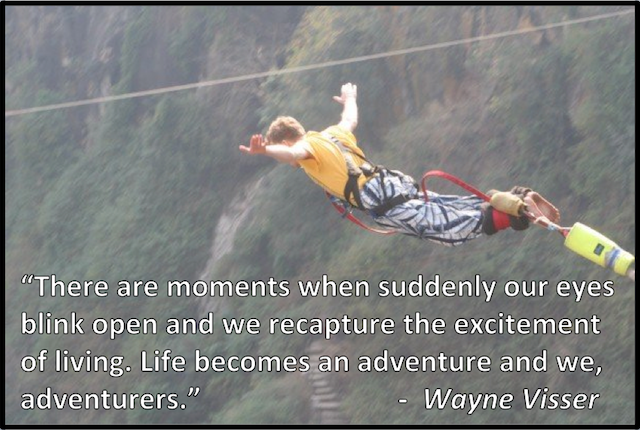January 2014
14-15 January: Bordeaux, FRANCE – Corporate Sustainability & Responsibility (MBA course lectures, Kedge Business School)
February 2014
18 February: Cape Town, SOUTH AFRICA – Sustainable Design & Technology: “Eco-innovation” (Cambridge Programme for Sustainability Leadership)
20 February – 1 March: Johannesburg, SOUTH AFRICA – Sustainable Business (MBA course lectures, Gordon Institute of Business Science)
March 2014
6 March: Guadalajara, MEXICO – Sustainability Innovation & Change Management (Department of Entrepreneurship and Innovation, Tecnológico de Monterrey Campus Guadalajara)
7 March: Guadalajara, MEXICO – Strategies for making your business Future Fit (Department of Entrepreneurship and Innovation, Tecnológico de Monterrey Campus Guadalajara)
7 March: Guadalajara, MEXICO – The Art and Practice of Sustainability Leadership (Department of Entrepreneurship and Innovation, Tecnológico de Monterrey Campus Guadalajara)
11 March: Ghent, BELGIUM – CSR is Failing: How Can We Make it Succeed? (Keynote speech, Flemish CSR Association)
12 March: Amersvoort, NETHERLANDS – Beyond CSR 2.0: From Responsibility to Resilience (Keynote speech, Beyond CSR)
20 March: Cambridge, UNITED KINGDOM – Sustainability Codes and Standards: Influential or Impotent? (MSt lecture, University of Cambridge Programme for Sustainability Leadership)
April 2014
23 April: London, UNITED KINGDOM – CSR Survives: But Can it Thrive? (Keynote speech, Net Impact).
May 2014
5 May: Cambridge, UNITED KINGDOM – Visions of a future-fit world: safe, shared, smart, sustainable & satisfying (Lecture, University of Cambridge Institute for Manufacturing)
7 May: Vienna, AUSTRIA – Moving ahead with technology (Presentation, UNEP-UNIDO Eco-Innovation workshop)
13 May: Melbourne, AUSTRALIA – Creating Shared Value: Revolution or Clever Con? (Speech, Deakin Business School Alumni Network)
13 May: Melbourne, AUSTRALIA – The Art and Practice of Sustainability Leadership (Lecture, Deakin Business School Faculty Seminar)
22 May: Seoul, SOUTH KOREA – Strategies for Surviving and Thriving in the Future (Keynote speech, KOSRI)
28 May: Johannesburg, SOUTH AFRICA – Your Future Fitness as a Leader & Transforming your Organisation (Dimension Data programme run by Gordon Institute for Business Science)
29-30 May: Harare, ZIMBABWE – CSR 2.0: Beyond CSV and CSR 1.0 (Keynote speech, Regional Centre for Social Responsibility, CSR Indaba)
June 2014
5-8 June: Johannesburg, SOUTH AFRICA – Innovation for Future Fitness (MBA course lectures, Gordon Institute of Business Science)
July 2014
10 July: Cambridge, UNITED KINGDOM – Sustainability Codes and Standards (Postgraduate Certificate in Sustainable Value Chains, University of Cambridge Institute for Sustainability Leadership)
10 July: Cambridge, UNITED KINGDOM – Leadership for Change (Postgraduate Certificate in Sustainable Value Chains, University of Cambridge Institute for Sustainability Leadership)
August 2014
5 August: Cambridge, UNITED KINGDOM – Sustainable Design and Technology: Eco-Innovation (MSt course lecture, University of Cambridge Institute for Sustainability Leadership)
28 August: Ann Arbor, USA (delivered virtually) – The Future of Business: How to Survive and Thrive in a Climate Constrained World (Webinar, Omnex).
September 2014
16 September: Buenos Aires, ARGENTINA (delivered virtually) – Beyond CSR to CIV: Creating Integrated Value (keynote speech, AgendaRSE).
18 September: Cambridge, UNITED KINGDOM – The Quest for Sustainable Business (MSt course lecture, University of Cambridge Institute for Sustainability Leadership)
19 September: Cambridge, UNITED KINGDOM – Strategies for Making your Business Future-Fit (MSt course lecture, University of Cambridge Institute for Sustainability Leadership)
October 2014
3 October 2014: Colombo, SRI LANKA – The Art and Practice of Sustainability Leadership (Keynote speech, CSR Conference, CSR Sri Lanka).
17 October: Johannesburg, SOUTH AFRICA (delivered virtually) – Futures Thinking (Global Executive Development Programme lecture, Gordon Institute for Business Science)
23 October: Cambridge, UNITED KINGDOM – Being an Effective Change Agent (MSt course lecture, University of Cambridge Institute for Sustainability Leadership)
November 2014
21 November: Moscow, RUSSIAN FEDERATION – CSR 2.0 in the context of modern challenges (Keynote speech, Conference on Philosophy and Culture of Social Responsibility, Moscow State Institute of International Relations)
26-29 November: Stockholm, SWEDEN – Sustainable Development & CSR (MBA lectures, Stockholm School of Economics SSE Riga)
December 2014
3-5 December: Bordeaux, FRANCE – Corporate Sustainability & Responsibility (MBA lectures, Kedge Business School)
8-12 December: Quito, ECUADOR – Creating Shared Value: Beyond CSR and CSV (Part of CSR Week, Hexagon / S2M).
Bookings
For more background information, see my speaking and lecturing profile.
To book a keynote speech, lecture or training event, please use the Contact form.












